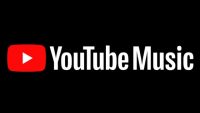Annual YouTube Music Payments Up 50 Percent to $6 Billion
September 15, 2022
YouTube global head of music Lyor Cohen announced that the platform paid $6 billion to the music industry between July 2021 and June 2022, a 50 percent increase over the $4 billion distributed in the same period in the prior frame. The amount includes monetization across all formats — short and long form video, audio only, live, user-generated content and more — on all platforms (desktop, tablet, mobile, and TV), in over 100 countries. For the second consecutive measurement period, UGC drove more than 30 percent of the payouts for artists, songwriters and rights-holders, according to the company.
YouTube reports shorts generated 30 billion views per day, with 1.5 billion monthly logged-in users, with Cohen promising that in addition to the platform’s $100 million Shorts Fund, “we’re creating long-term monetization solutions for Shorts, and we’ll have more to share on this soon.”

“We want our twin engine of ads and subscriptions to be the No. 1 contributor of revenue to the industry by 2025,” Cohen wrote on the YouTube blog.
Industry leader Spotify reported $7 billion in royalties paid in 2021, according to the music specialty platform’s own Loud & Clear blog (which also cites a $2 billion year over year rise). But YouTube is clearly the bigger platform overall, as Music Business Worldwide points out, noting that “YouTube’s Q1 ad revenue was more than double what Spotify made across its entire business in Q1.”
MBW says YouTube’s 30 percent UGC data point translates to YouTube “now paying music rightsholders somewhere close to $2 billion annually in ad revenue generated from UGC,” calling it “food for thought for music labels and publishers when they compare it to the money they’re receiving from TikTok and Facebook/Meta, amongst other ’emerging’ social platforms.”
That doesn’t mean YouTube is without music issues. On Monday, Variety covered a Billboard report critical of YouTube’s rights-management system, alleging it is “‘full of errors’ and ‘ripe for abuse,’” resulting in some misappropriated payments (charges that were denied).
Variety concludes, however, that when it comes to YouTube and music “there’s no arguing with its influence and success,” citing by example how the streamer worked with artist Blackpink “across multiple formats” to make its “Pink Venom” single “the biggest 24-hour music video debut of 2022, and the third-largest 24-hour music video debut of all time.”

No Comments Yet
You can be the first to comment!
Sorry, comments for this entry are closed at this time.